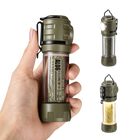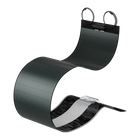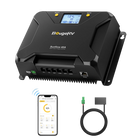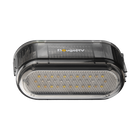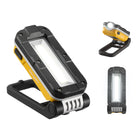12 Things You Should Know About Solar Panels To Charge An Electric Car


Electric cars have become increasingly popular in recent years. Now it seems every car brand has added an electric vehicle to its fleet. But if you’re thinking of purchasing one, you may be wondering: can solar panels charge an electric car? Or not?
We put together this article to answer that question. Keep reading to learn more.
1. Can Solar Panels Charge An Electric Car?
Yes, you can use solar panels to charge an electric car just like you can use them to power anything else in your home. If your house already has solar panels collecting and storing energy, then you can simply use that energy to charge your electric car just like you might use it to charge a laptop or keep the lights on.
This means that you can charge your electric car with solar panels regardless of whether it’s a Tesla, Ford Lightning, Nissan Leaf, or any other type of vehicle.
2. Advantages of Charging Your EV With Solar Panels
There are a number of reasons why you may want to charge your EV with solar panels. The first is that you would likely significantly reduce your power bill. Solar energy is massively cheaper than traditional grid-based electricity. If you charge your electric vehicle every night with solar power instead of grid electricity, your savings over the course of a year could be very large.
In addition to the cost-saving benefits, you can also look forward to having zero carbon emissions and being able to charge your car at home instead of only on the go. When you put it all together, there are plenty of reasons to consider charging your EV with solar panels.
3. Level 2 Chargers Are The Most Convenient for Charging EV Cars
If you’re going to charge your EV with solar panels, you should invest in a level 2 charger. These deliver a higher voltage charge (220 to 240 is standard). That higher voltage will charge your EV in about 6 to 12 hours, as opposed to level 1 chargers, which can take significantly longer than that.
However, the length of time it takes to charge your EV will depend on the number of solar panels you have producing energy and how efficiently you store that energy in batteries. You don’t technically need solar batteries or a Tesla Powerwall to charge an EV at home. But you do need a battery if you want to be able to charge your EV when the sun isn’t out.
So, practically speaking, you’re going to want a solar battery to go with your level 2 charger. But that absolutely doesn’t need to be a Tesla Powerwall, as these are more expensive than other options since you’re paying for the brand name. But if you did want to use a Tesla Powerwall, the company recommends using at least 14 solar panels to keep it charged.
4. How Much Solar Power To Charge An Electric Car?

The amount of solar power you need to charge an electric car depends on the type of car you have and how long you want to be able to drive it. For example, take a look at the following table, which shows the kWh requirements of the most popular EV vehicles:
|
Car |
kWh required for 40 miles of driving distance |
|
Tesla Model 3 |
10 |
|
Chevrolet Bolt EV |
11.2 |
|
Hyundai Ioniq 6 |
9.64 |
|
Kia Niro Electric |
11.6 |
|
Nissan LEAF |
12 |
|
Subaru Solterra |
12.4 |
|
Ford Lightning |
19.2 |
5. How Many Solar Panels To Charge An Electric Car?
Once you know the kWh requirements of your EV, you can use the number to determine how many solar panels you need to keep the car charged. You would just need to figure out the number of solar panels that you need to deliver the kWh your car requires every charge. For instance, a Tesla Model 3 requires 10 kWh for 40 miles of driving, so your panels would need to create at least that much energy.
As a general rule of thumb, you will typically need between 6 and 12 solar panels to keep your EV charged. We can get this result by a simple calculation, let’s take Tesla Model 3 mentioned in the above table as an example:
Calculate the KWh of electricity a single panel can produce per day first:
Usually, solar panels for homes are usually at 250-400W, let's use 360W as a baseline. And the number of sun hours in the USA per day is about 4.5 hours. So the KWh of electricity in a single panel is 360W*4.5h=1620Wh per day, which means 1.62KWh a day.
As Tesla Model 3 needs 10KWh to run 40 miles, you can figure out you need 10KWh/1.62KW≈6 solar panels to charge a Tesla Model 3 that travels 40 miles.
However, it’s impossible to provide a more specific number than that without knowing where you live and how much sun your home receives.
For example, residents of Arizona tend to receive year-round sun. They would need fewer solar panels to charge a Nissan LEAF, Hyundai IONIC, or Porsche Taycan than someone with the same cars living in New York state.
6. How To Use Solar Panels To Charge An Electric Car?
One key thing to note about using solar panels to charge an electric car is that you often need a central string inverter to do so. This transforms the DC power that your solar panels generate into AC energy that your car can use to charge. Solar batteries often have these inverters built into them, but not always. So it will be important to check your battery to see.
Other than that, the process is very straightforward. Simply plug your electric car charger into your solar battery at night and you can wake up to a fully-charged, drive-ready car in the morning.
7. How Long Would It Take To Charge An Electric Car With A Solar Panel?
The amount of time it takes to charge an EV depends on the car brand and the amount of kWh your solar panels generate. For example, if you wanted to charge a Tesla with a single solar panel, it could take several months to do so. But if you wanted to charge the same car with 5-10 solar panels, you could do so overnight within about 8 hours.
8. Solar Charging Is Not A Good Idea For EVs When:
There are a few situations in which solar charging may not make sense for your EV. The most important one to note is that if you need an extremely fast charge, solar charging may not be a good fit.
Additionally, consider how much sun your home receives throughout the year. If there are months of grey skies or your house’s sunlight is blocked by nearby obstacles, solar charging may not be right for you.
9. Can You Charge An Electric Car With A Portable Solar Panel?
Eventually, you will be able to charge your electric car with a portable solar panel while out on the open road. But the technology to do that isn’t quite there just yet. Portable solar panels are more powerful than ever. But we need technological improvements in batteries before this will be a possibility.
10. How Many Portable Solar Panels Would I Need To Charge An EV?

You would need far too many portable solar panels to charge your EV to make it feasible to do so. Most estimates suggest that around 9 solar panels would be necessary, all of which would need to create around 400 watts of power. That’s simply not realistic given the current technological limitations.
When it comes to using our portable solar panels to run an EV car that needs 10KWh to travel 40 miles, you’ll need around 12 of our Yuma 200W flexible solar panels and over 12 pcs of 100W solar panels to do that.
Therefore, drive your luxurious EV and take our foldable solar panels, it’s more practical to use our solar panels as battery backup for your phone, camera, e-readers, and other electronics while camping!
11. Why Can't Electric Cars Charge Themselves With Solar Panels?
Eventually, there likely will be a point when electric cars charge themselves with integrated solar panels. But the technology has not quite reached that point. We need to be able to create more energy through solar panels with smaller surface areas before this can happen.
12. What Can BougeRV Solar Panel Help You?

If you’re interested in using solar energy to power more of your life, then BougeRV 12V solar panels are just what you’re looking for. They’re available in various sizes and power ratings so you can choose the model that meets your needs.
We also sell special easy-to-install flexible solar panels that are ideal for campers, RVs, and other on-the-go vehicles. For example, our 200w flexible solar panel is the perfect way to bring some energy to your next outdoor vacation.
Seeking an extremely compact option? We also have our 100w CIGS portable solar blanket. It’s another highly flexible way to bring the power of solar energy with you no matter where your adventures take you.
Conclusion
The bottom line is that you can use solar panels at home to charge your EVs overnight. Doing so can save you money, improve your carbon footprint, and simplify your life. But we still need more technological improvements before it will be possible to use portable solar panels to charge an EV on the go.
If you’re interested in learning more about how you can use solar energy to enhance your travels, take a closer look at our website to learn more about how BougeRV can help you do it.
FAQs
-
Can I charge my car with solar panels?
Yes, you can charge your car with solar panels. However, it typically takes at least 8 hours to do so and it’s not yet possible to charge EVs with portable solar panels.
-
How many watts does it take to charge an electric car with solar panels?
You typically need around 10 to 15 kilowatt-hours of electricity to power an EV for about 40 miles of driving.
-
Are solar panels enough to charge an electric car?
Yes, most people can use just solar panels to charge an electric car for daily travel. But if you have a longer commute than 40 miles, then you may not always get enough of a charge – especially when it’s not very sunny out.
-
Can you fully charge an electric car with solar panels?
Yes, you can fully charge your electric car with solar panels. But the amount of time that it takes to do so will depend on the car you’re driving, the number of solar panels you have, and how much sun your home receives.
-
Can solar panels charge an electric car at night?
Yes, solar panels can charge an electric car at night. But you need a solar battery to do so. The panels fill the battery during the day and then you use that power to charge your EV overnight.








